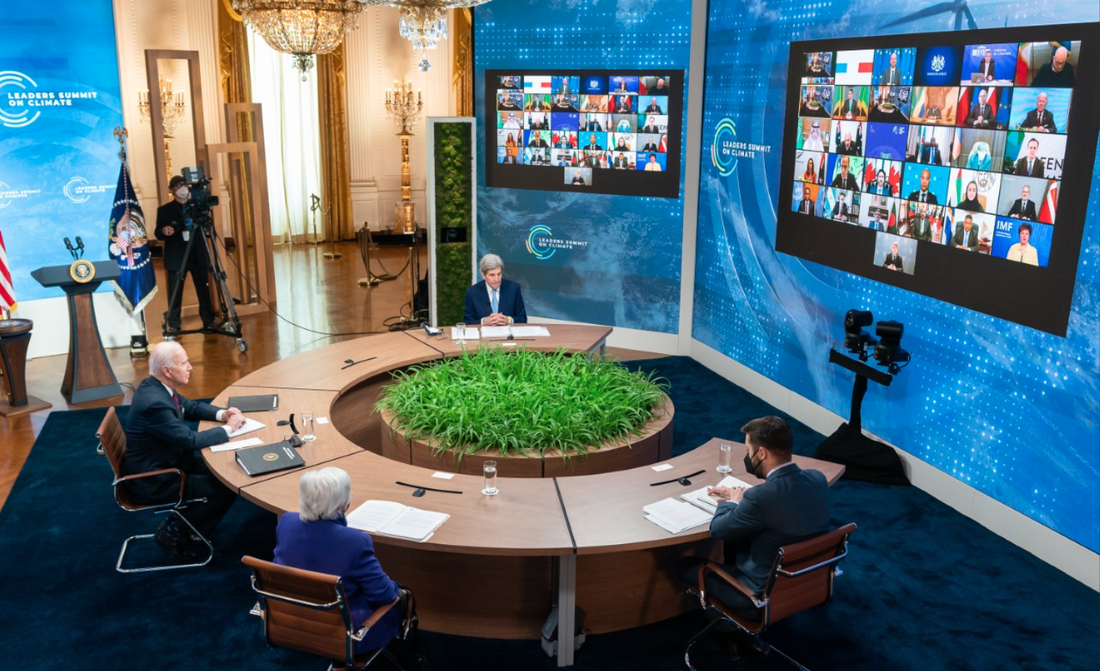According to the White House summary, the following commitments were made by leaders of countries in the Americas.
- Argentina will strengthen its Nationally Determined Contribution (NDC), deploy more renewables, reduce methane emissions, and end illegal deforestation.
- Brazil committed to achieve net zero by 2050, end illegal deforestation by 2030, and double funding for deforestation enforcement. (However, there are significant concerns about President Jair Bolsonaro's commitment to action, given his government's refusal to enforce environmental laws and hostility to Amazonian Indigenous peoples - see civil society reactions here and here.)
- Canada will strengthen its NDC to a 40-45% reduction from 2005 levels by 2030, a significant increase over its previous target to reduce emissions 30% below 2005 levels by 2030.
- The United States announced a new target to achieve a 50-52 percent reduction from 2005 levels in economy-wide net greenhouse gas pollution by 2030.
A roundup published by the Natural Resources Defense Council (NRDC), Latin America at the Leaders Summit on Climate, noted: "The countries of Latin America in attendance—Argentina, Brazil, Chile, Colombia, and Mexico—displayed a broad range of ambition... [S]ome countries demonstrated their willingness to be climate action leaders while others seemed intent on cementing their position as climate laggards."
An example of climate leadership was Chile's President Sebastián Piñera, who according to the NRDC report: "stated that Chile was determined to have a significant and positive impact in the fight against climate change. He highlighted that Chile’s vast renewable energy sources would allow it to decarbonize its energy matrix by 2040, achieve carbon neutrality by 2050, and become the most efficient green hydrogen producer in the world 'thus helping other countries to decarbonize their own energy matrix.'"
The Summit's discussion on nature-based solutions, hosted by U.S. Interior Secretary Deb Haaland, "addressed how achieving net zero by 2050 is not possible without natural climate solutions, such as stopping deforestation and the loss of wetlands and restoring marine and terrestrial ecosystems." According to the White House summary: "Costa Rica underlined its co-leadership of the High-Ambition Coalition for Nature and People and the intention to have 30% of its ocean under protection by 2022; [and] Peru highlighted that more than a fifth of its NDC measures are associated with nature-based solutions."
Clean energy and enabling technologies were the focus of Session 4 of the Summit ("Unleashing Climate Innovation”), which "explored the critical innovations needed to speed net-zero transitions around the world and highlighted the efforts of governments, the private sector, and civil society in bringing new and improved technologies to market."


 RSS Feed
RSS Feed